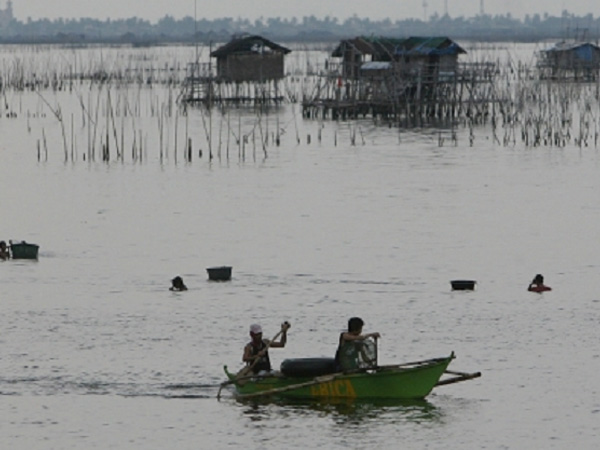
INQUIRER FILE PHOTO
TACLOBAN CITY — The Bureau of Fisheries and Aquatic Resources (BFAR) has warned the public not to consume shellfish products taken from another bay in Samar and a Cebu town where a red tide phenomenon was detected.
In a local advisory issued on Tuesday, Oct. 24, BFAR said the seawater of Cambatutay Bay was positive for Pyrodinium bahamense, a toxic microorganism that causes paralytic shellfish poisoning (PSP).
The sustained warm weather in the past weeks and soil erosion from river systems during rainy days, it said, triggered the recurrence of the red tide phenomenon in the bay.
BFAR said red tide recurred in Cambatutay Bay after nearly two years.
“To safeguard human lives, we are issuing this warning as a precautionary advice to the public to refrain from gathering, selling, and eating all types of shellfish and Acetes sp. locally known as ‘alamang‘ or ‘hipon‘ from these bays,” the bureau said in its local shellfish bulletin.
Fish, squid, crab, and shrimp gathered from these areas are safe to eat as long as all its entrails are removed, and the marine products are washed thoroughly with running water before cooking.
BFAR also cautioned people from the municipality of Madridejos, north Cebu from gathering and consuming shellfish from the town, which had also tested positive for red tide.
“We advise all shellfish gatherers, traders, and consumers to exercise caution and avoid collecting, harvesting, and consuming shellfish or bivalves such as clams, mussels, oysters, and scallops; and sea urchins, from the affected areas until further notice, as well as ingesting contaminated seafood, which can lead to intoxication and pose serious health risks,” said Reynaldo Santillan, acting municipal agriculturist of Madridejos in an Oct. 21 notice to the public.
The BFAR earlier raised the red tide warning in San Pedro Bay in Basey town, coastal waters of Calbayog City, and Irong-Irong Bay in Catbalogan City, all in Samar; as well as the Matarinao Bay in the towns of General MacArthur, Quinapondan, Hernani, and Salcedo in Eastern Samar.
The BFAR regional office sent water and shellfish meat samples from these bays to their main office for confirmatory testing and inclusion in future shellfish bulletins.
Red tide is a phenomenon where the water gets discolored by a high concentration of algae.
BFAR asked local governments to exercise extra vigilance against the gathering, trading, and consumption of shellfish to prevent the incidence of PSP, which could occur minutes after ingesting bivalve shellfish such as mussels, oysters, and clams that contain red tide toxins.
Consuming toxic shellfish could lead to PSP, which affects the nervous system within 30 minutes after consumption.
Symptoms of PSP include tingling of the lips and tongue and which spreads to the face, neck, fingertips, and toes. It will also lead to headache, dizziness, and nausea, among others.
In severe cases, BFAR said muscular paralysis and difficulty in breathing may occur within five to 12 hours.
So far, there is no antidote or direct treatment for PSP, but BFAR said symptoms may be treated by inducing vomiting and pumping the stomach.
RELATED STORIES
3 bays in Samar placed on red tide alert
Red tide warning up in 11 areas